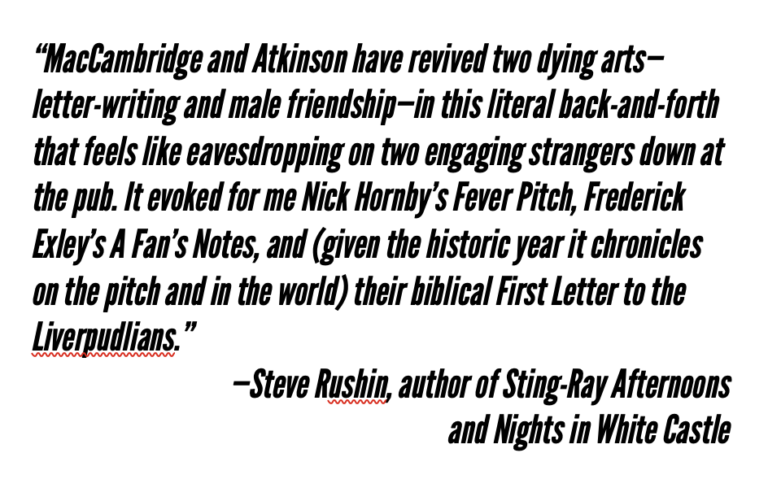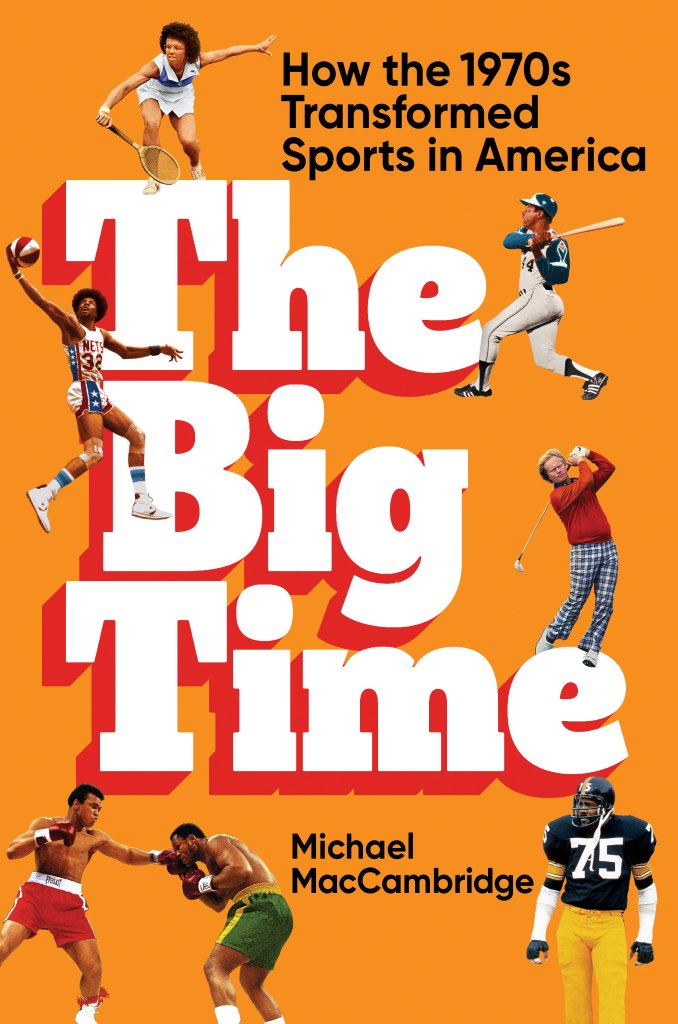Every decade brings change, but as Michael MacCambridge chronicles in THE BIG TIME, no decade in American sports history featured such convulsive cultural shifts as the 1970s. So many things happened during the decade—the move of sports into prime-time television, the beginning of athletes’ gaining a sense of autonomy for their own careers, integration becoming—at least within sports—more of the rule than the exception, and the social revolution that brought females more decisively into sports, as athletes, coaches, executives, and spectators. More than politicians, musicians or actors, the decade in America was defined by its most exemplary athletes. The sweeping changes in the decade could be seen in the collective experience of Billie Jean King and Muhammad Ali, Henry Aaron and Julius Erving, Kareem Abdul-Jabbar and Joe Greene, Jack Nicklaus and Chris Evert, among others, who redefined the role of athletes and athletics in American culture. The Seventies witnessed the emergence of spectator sports as an ever-expanding mainstream phenomenon, as well as dramatic changes in the way athletes were paid, portrayed, and packaged. In tracing the epic narrative of how American sports was transformed in the Seventies, a larger story emerges: of how America itself changed, and how spectator sports moved decisively on a trajectory toward what it has become today, the last truly “big tent” in American culture.


Red Letters: Two Fervent Liverpool FC Supporters Correspond through the Epic Season That Wouldn’t End
Two friends and fellow Liverpool fanatics—one in the heart of Liverpool and the other nearly 5,000 miles away in Austin, Texas—correspond weekly during a season to end all seasons… and a season that almost didn’t end. Over the course of the Liverpool Football Club’s 2019/20 campaign, Michael MacCambridge and Neil Atkinson ponder the nature of sports fandom, the differences between American and English sporting culture, and, in the spring of 2020, the global pandemic that brings so much of modern life to a halt.

'69 Chiefs: A Team, A Season, and the Birth of Modern Kansas City (2019)
An intimate portrait of one of the most important (and overlooked) teams in pro football history, and one of the great champions of the Super Bowl era. With vivid support from the candid, intimate photography of Rod Hanna, the story traces the Chiefs from the devastating end to the 1968 season, the myriad adversity of the beginning of the 1969 campaign, through the historic Super Bowl IV, which forever changed perceptions of the Chiefs, the AFL, and Kansas City.

Chuck Noll: His Life's Work (2016)
When Chuck Noll took over the Pittsburgh Steelers in 1969, they were the least successful franchise in the NFL. Over the next 23 seasons, he transformed the team’s image, won four Super Bowls and embarked on one of the most successful—and most misunderstood—coaching tenures in NFL history. This biography is a reckoning, a reconsideration, and also a love story.

America's Game: The Epic Story of How Pro Football Captured A Nation (2004/2005)
This sweeping modern history of the NFL has been called “quite simply the top pro football book of all time,” for its portrayal of how Pete Rozelle, Lamar Hunt and the caretakers of the game helped pro football eclipse baseball to become the nation’s most popular sport. First published in 2004 and still in print today, it stands as the definitive book about the sport’s rise.
Recent
‘The Big Time’ New York Times Review
“The Big Time” rewinds to the ’70s, when showy personalities and compelling rivalries turned sports into mass entertainment.
‘The Big Time’ Wall Street Journal Review
Lights, Camera, Sports! Monday Night Football, Billie Jean King, Dr. J. dunking on TV: The 1970s took athletics to a whole new level.
How American Women Claimed Their Place in Sports
In the 1970s, female players poured into organized athletics in unprecedented numbers, aided by Title IX, Billie Jean King and the first women’s collegiate championships.
By Michael MacCambridge
‘The Big Time’ Library Journal Review
VERDICT: A valid and solid work on a decade of significant changes in the world of
sports.
No Place Like Home
On the 10th anniversary of Sporting Kansas City moving into its new home on June 9, 2011, a lifelong Kansas City sports fan looks back
By Michael MacCambridge

